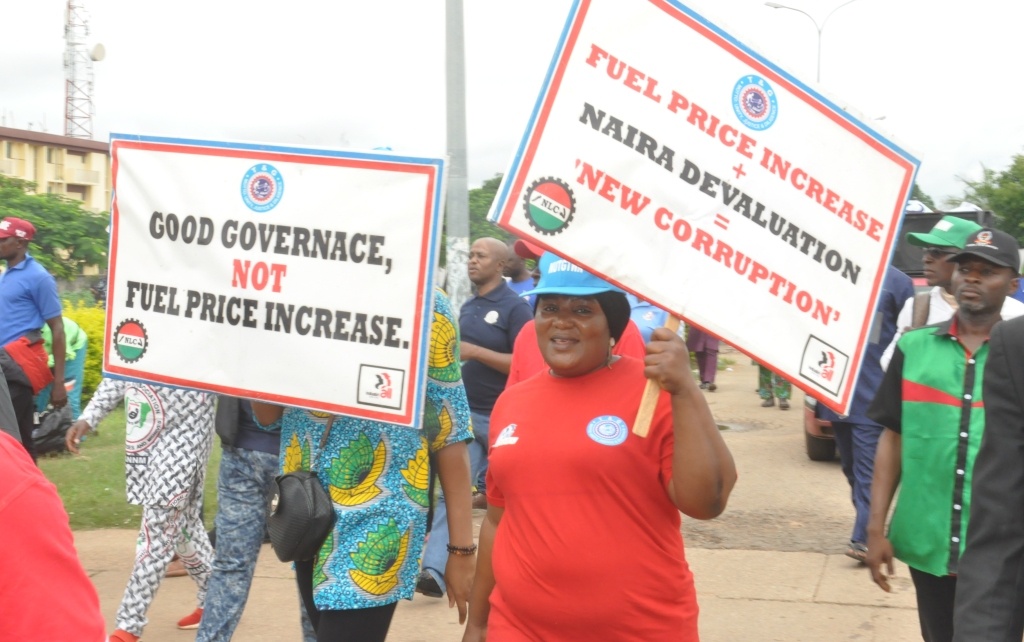8 August, 2024On the night of 7 August, armed security forces broke into the offices of the Nigeria Labour Congress (NLC) in Abuja, seizing printed materials and other documents. The Federal Government of Nigeria (FGN) claims these materials were “seditious and used to incite and organize” recent protests advocating for pro-poor economic policies.
The break-in and occupation of the union offices occurred following weeklong national protests aimed at addressing the rising cost of living, which unions argue is leading to hunger and poverty in Africa’s most populous country. Armed forces have occupied the offices and refuse to leave. The ransacking took place on the same day as an NLC meeting, where the ongoing mass protests under the social media handle #EndBadGovernance were discussed.
During the meeting, the NLC highlighted that freedoms of assembly, association, expression, and speech were under threat, citing that police and security forces shot and killed 13 protesters and injured several others.
“The NLC condemns in the strongest terms the human rights violations perpetrated by security forces against peaceful protesters. The right to protest is a fundamental democratic right, and its suppression through violence is unacceptable. The attempt to criminalize protest is deplorable, especially in a democracy. The hiring and use of sponsored thugs and divisive propaganda to scuttle the protests is unfortunate,” the NLC said in a statement.
The mass action began when the government removed petroleum subsidies, sparking immediate protests from trade unions in 2023, including a national shutdown in June this year.
Furthermore, the NLC stated that the government must address the grievances of the workers and the people rather than resort to violence. It stressed that the government’s policies, backed by the International Monetary Fund (IMF) and World Bank, were bringing misery to the people. According to the FGN’s National Bureau of Statistics, 63 per cent or over 133 million people face multidimensional poverty, which includes cooking with dung, wood, or charcoal rather than cleaner forms of energy. Additionally, there is inadequate access to healthcare, limited sanitation, food insecurity, and poor housing. The recently agreed-upon minimum wage of 70,000 Naira ($USD44) is not a living wage.
Joe Ajaero and Emmanuel Ugboaja, the NLC president and general secretary respectively, emphasized:
“We must maintain our commitment to non-violence and ensure that our actions are lawful and disciplined. The NLC remains committed to defending the rights and welfare of Nigerian workers and the broader population. We will not relent in our efforts to ensure that justice, equity, and good governance prevail in our nation.”
Ajaero is also general secretary of the National Union of Electricity Employees (NUEE), which is affiliated with IndustriALL Global Union.
“The Federal Government of Nigeria must respect workers and human rights and stop the violence and intimidation. The government must also engage with the unions in social dialogue to find ways to end the crisis,”
said Paule France Ndessomin, IndustriALL regional secretary for Sub-Saharan Africa.
IndustriALL affiliates that are members of the NLC include the National Union of Chemical, Footwear, Rubber, Leather, and Non-Metallic Employees (NUCFRLANMPE), National Union of Petroleum and Natural Gas Workers (NUPENG), National Union of Textile, Garment, and Tailoring Workers of Nigeria (NUTGTWN), and Steel and Engineering Workers of Nigeria (SEWUN).
